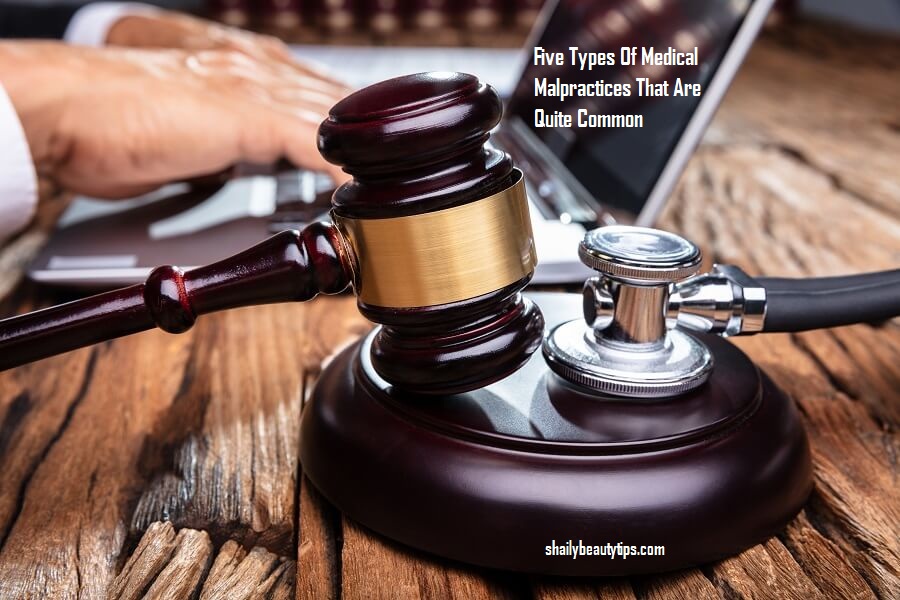It is understandable if we expect nothing but help and positive outcomes from our trusted healthcare providers. After all, we turn to these professionals in times of need. However, we can not neglect evidence pointing towards frequent medical malpractice complaints and subsequent consequences. A study reported in the Journal of Patient Safety claimed that mistakes by healthcare providers are the third major cause of mortality in the United States after heart disease and cancer. Such medical errors cause approximately 440,000 deaths annually. If you ever feel that you or a loved one has been harmed because of any such medical mistake, the law provides you protection. You can contact medical malpractice attorneys and file a lawsuit. But before you can take effective action, you should know what common medical malpractices you need to look out for. Below, we have discussed some of the most common mistakes healthcare providers make.
Below, We Have Discussed Some of the Most Common Mistakes Healthcare Providers Make

1. Birth Injuries
One of the most serious medical malpractices with potentially life-long consequences is mishandling at birth. Obstetricians, gynaecologists, and other healthcare providers related to this domain can make mistakes that result in serious medical conditions. These may include cerebral palsy, nerve damage, fractures, paralysis, developmental disorders, among others. Such mistakes also include improper prenatal care for the mother, failure to diagnose birth complications, inadequate monitoring of the mother or the baby during labor, and mistakes related to anaesthesia administration.
One common medical condition resulting from mishandling the baby during birth is Erb’s palsy.Erbs palsy lawsuit settlements are a common resort for parents who suspect that their child’s condition resulted from medical negligence. This problem usually results from the use of excessive force or forceps when pulling the baby’s head, neck, shoulders, arms, or feet during delivery.
2. Misdiagnosis Or A Failure To Diagnose A Serious Medical Problem
When a healthcare professional fails to diagnose a problem, whether because of negligence or incompetence, the patient can file a misdiagnosis complaint. A misdiagnosis also includes diagnosing a patient with an incorrect medical condition. Sometimes someone who does not have any medical problem may be diagnosed wrongly by a doctor. A misdiagnosis may also occur because of lost or mislabelled lab results or tests. If the misdiagnosis negatively impacts the patient, it reaches the level of medical malpractice. It is important to provide evidence that any other competent doctor could have made the correct diagnosis, to file a malpractice suit against such a misdiagnosis,
Research by Modern Healthcare shows that approximately 33% of malpractice claims between 2013 and 2017 were due to a delay in or failure to diagnose a condition. Such misdiagnosis can be a matter of life or death for some patients.
3. Inappropriate Treatment
If a healthcare provider cannot treat a medical condition, they must not be vague about it and refer the patient to a specialist. Sometimes when doctors take on too many patients to handle well together, some tend to be neglected. Ideally and ethically, the healthcare provider should redirect resources and assign patients to other caregivers if they believe they cannot provide adequate care.
This situation usually arises from inappropriate monitoring of the patient’s condition, not performing necessary medical tests, or not referring the patient to other specialists when needed. Other causes can include an inability to treat a medical problem in time or not clarifying all the alternative treatment options to the patient.
4. Prescription Errors
Medication errors can have various consequences, from mild allergies to life-threatening impacts on the patient’s health. This can include both prescription and administration mistakes; the doctor or nurse will be held responsible depending on which step the process went wrong. Sometimes the pharmacist’s negligence can result in a prescription error. Most often, medical errors result from failure to identify allergic reactions, recognize signs of drug abuse, or from prescribing the wrong medicine. FDA reports that administrating an improper dosage of medication was the most common medical error leading to fatality (41% of fatal medical mistakes).
5. Surgical Mistakes
Surgeries are always risky procedures, but certain mistakes by the surgeons can cause irreversible impacts. There is a fine line between errors labeled as malpractice and those where the surgeon is not held accountable. Sometimes doctors might make such huge blunders as operating the wrong patient or wrong organ. What makes surgical mistake malpractice is that the healthcare provider fails to meet the standard of care, resulting from the surgical error itself. Thus not all surgical errors can be labeled as medical malpractices. A malpractice claim cannot be filed if the patient is not harmed directly.
Final Words
Patients expect the best possible care from healthcare providers, and caregivers should ensure that they meet these expectations. Competent professionals typically take systematic action to ensure this, but sometimes, medical mistakes can cause serious harm to the patient. Such errors range from mishandling during birth, prescription mistakes, misdiagnoses, inadequate treatment, and more serious surgical mistakes. The patients are protected by law and can file a lawsuit against the offending healthcare provider in such situations. If you or your loved one has suffered from such medical malpractice, you should contact an experienced attorney to investigate the situation.


